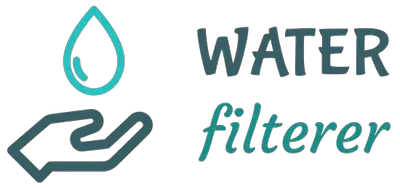Salt is a naturally occurring substance that can be used to soften hard water. Hard water contains magnesium and calcium, which can form deposits on your fixtures and appliances. These deposits can build up over time and cause your water pressure to decrease. This is where salt comes in.

Salt crystals are a popular option for many people, but they’re not right for everyone.
When used correctly, salt can help to remove these deposits and increase the lifespan of your fixtures and appliances.
How do salt crystals work?
Salt crystals work by breaking up the deposits that have built up on your fixtures and appliances. The process begins when the salt is added to the water softener. The salt then breaks down the magnesium and calcium deposits, which are then flushed out of the system. This leaves your fixtures and appliances looking like new and extends their lifespan.
Below are three reasons why you might want to consider using salt crystals in your water softener.
1. Salt crystals are an effective way to soften water.
If you’re looking for a water-softening solution that is effective and easy to use, then salt crystals might be a good option for you. When added to your water softener, salt crystals help to remove the magnesium and calcium ions that cause hardness. This leaves your water feeling softer and easier on the skin.
2. Salt crystals are a natural option.
For those who are looking for a more natural way to soften their water, salt crystals might be the right choice. Unlike some chemical-based methods, salt crystal water softeners don’t introduce any new chemicals into your water supply. Instead, they rely on a naturally occurring process (the exchange of sodium ions for magnesium and calcium ions) to effectively soften your water.
3. Salt crystals are affordable.
In comparison to some other water-softening options, salt crystals tend to be a more cost-effective choice. If you’re looking for a cost-effective way to soften your water, then salt crystals might be the right option for you
Keep in mind that there are some drawbacks to using salt crystals in your water softener. For example, they may not be as effective at removing other minerals that can cause hardness (such as iron), and they can also increase the sodium content of your water if used too frequently. It’s important to weigh the pros and cons before deciding on a water-softening method
Are salt crystals bad for the environment?
Salt crystals are not bad for the environment when used correctly. In fact, they can actually help to improve water quality by removing pollutants from the water. However, it is important to only use as much salt as you need in order to avoid polluting the environment.
It is also important to dispose of salt crystals properly, as they can have a harmful effect on plants and wildlife if not disposed of correctly. Overall, using salt crystals in your water softener can have positive benefits for both your home and the environment.
You don’t necessarily need to use salt if you have a water softener. However, it is generally recommended because it is an effective way to remove deposits from your appliances.
Always make sure to follow the instructions for your specific water softener and only use as much salt as necessary. And remember to dispose of any leftover salt properly to avoid harmful effects on the environment.
Final Thoughts
Whether or not you chose to use salt crystals in your water softener is ultimately up to you. But it’s important to consider the benefits and drawbacks, as well as any potential effects on the environment.
It is commonly thought that salt can help to lengthen the lifespan of your fixtures and appliances by removing build-up from their surfaces.
Ultimately, finding the right water-softening solution for your home will lead to better-quality water and longer-lasting fixtures and appliances.

